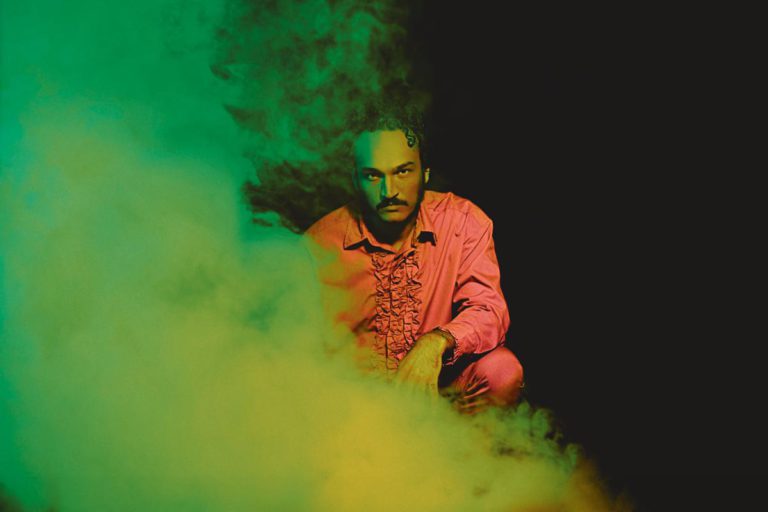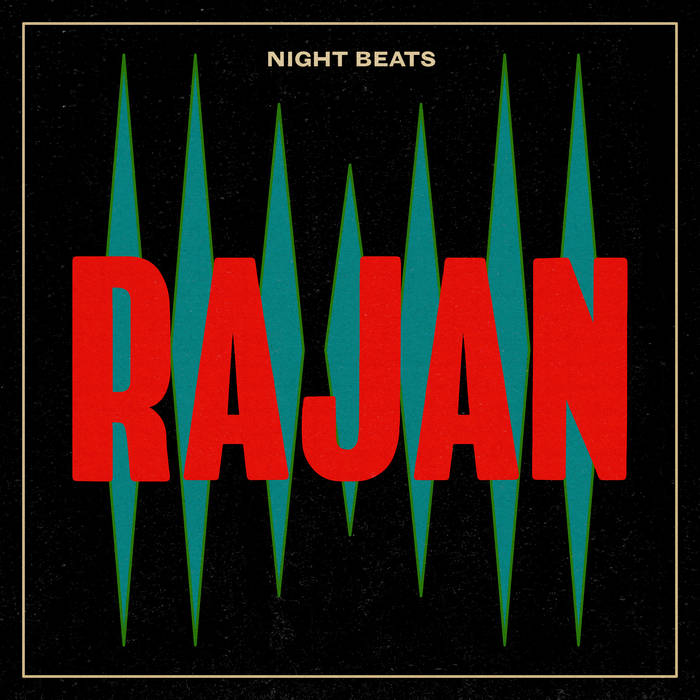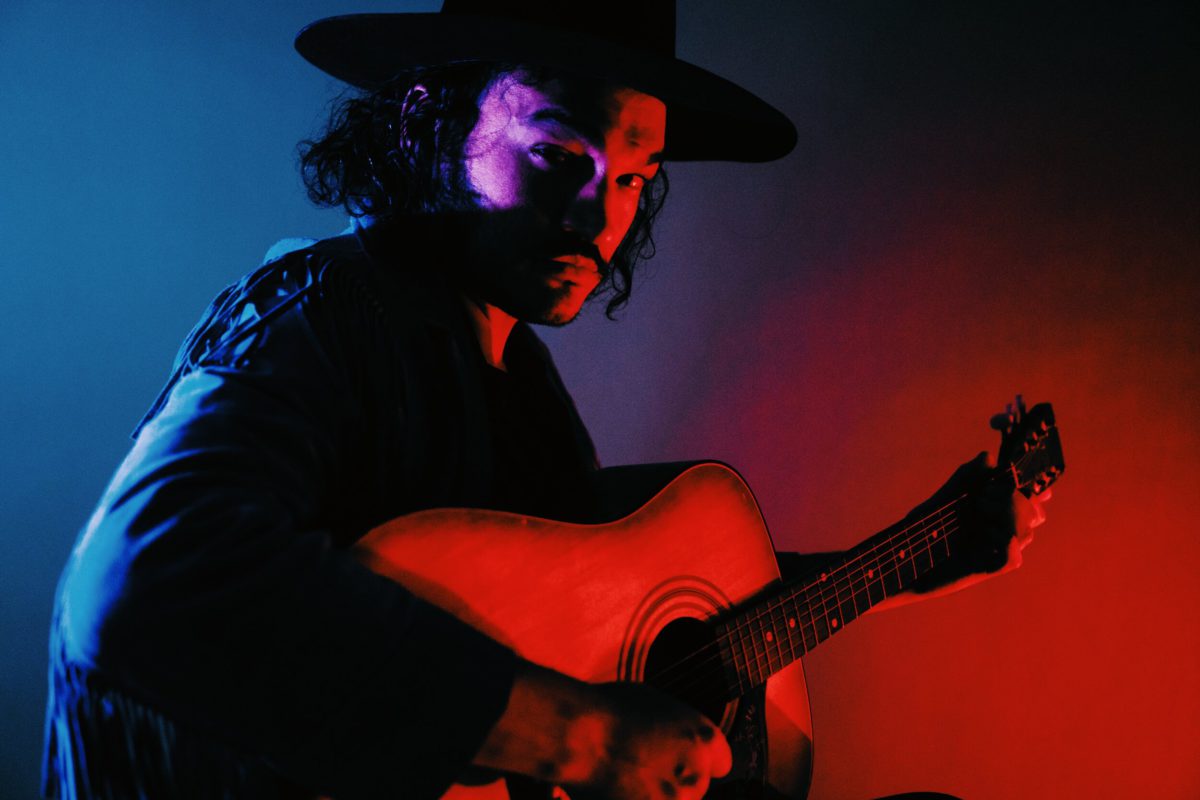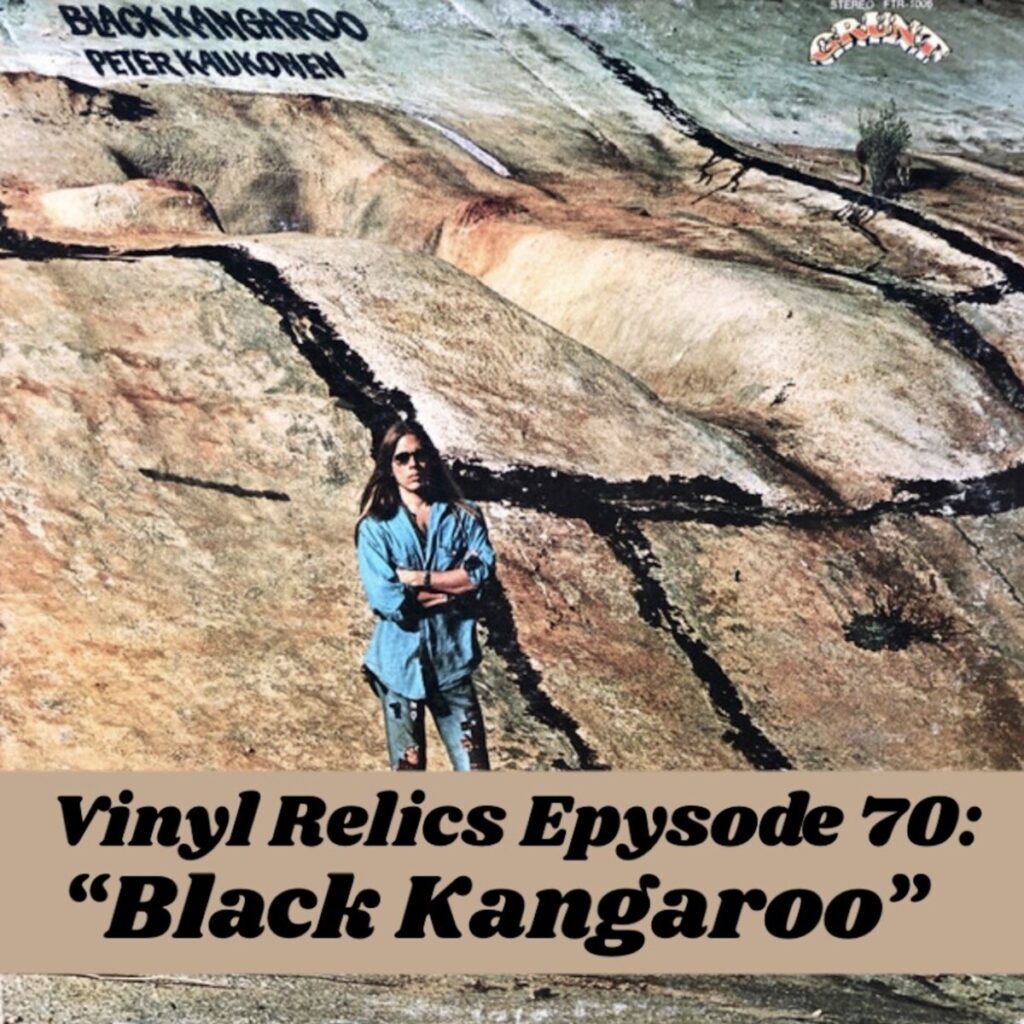Interview–Danny Lee Blackwell of Night Beats
Interview–Danny Lee Blackwell of Night Beats
Psychedelic Scene interviews Danny Lee Blackwell of Night Beats prior to the release of new album Rajan.
Jason LeValley:
So I’m Jason from Psychedelic Scene.
Danny Lee Blackwell of Night Beats:
Hi, Jason.
LeValley:
Hi, nice to meet you.
Blackwell:
Nice to meet you too.
LeValley:
I’ve heard the new record a few times, and I think it’s a damn good one.
Blackwell:
Thank you.
LeValley:
Yeah, it’s called Rajan. Is that how you pronounce it?
Blackwell:
Yes. That’s fine. Rajan. Rajan. Both work. Rajan. Yeah.
LeValley:
And just a few minutes ago, I noticed that you posted something on social media for Mother’s Day and said that you hope the record reflects your mother’s love or something to that effect. That’s not you doing that?
Blackwell:
That’s what I wrote.
LeValley:
And that’s very sweet. What would that mean, though?
Blackwell:
What does that mean? Okay, so in those words, I think the concept is to explain a sound. And when you have to use descriptions that are more common and used to put genre to things and to condense and reduce that. I don’t know when I’m describing sound or if I’m trying to explain an idea. I think I’ve always used analogies. But what it really is is more thinking and things of a feeling, perhaps. So what I wanted to embody with this record was that eternal love that is the strongest thing in the universe now. It’s the only… what’s the word for it? Pardon my memory here. But the idea of something love.
LeValley:
It’s unconditional love.
Blackwell:
Unconditional. Thank you. Yeah, so I trip up my words sometimes, but yeah, that’s like the unconditional love of the universe. And that’s what I wanted to make in the form of an album.
LeValley:
Okay, well, I’ve heard some of your other albums, too, and I’m wondering what you would say is unique about the new record.
Blackwell:
New songs?
LeValley:
Yeah, new songs. And it sounds like you’ve also new art, expanded, you’ve branched out in musical styles, too.
Blackwell:
Oh, you think? How so? How would you say?
LeValley:
Well, it’s hard to nail it down, but I just hear more than straight-up rock or what you’ve been doing. And I know with the last record, Outlaw R & B, you presented some country-esque material there, but it seems like you use more influences this time around than on any previous record.
Chris Keller
Blackwell:
Well, I don’t think I really have a say on what influences me. So for me, if there’s more things that would make sense because it’s the 6th album and there’s different tricks and inspiration that you can find in your life. Right. But I mean, there’s a country record or a country song on that first record and the band is named after a Sam Cooke record. And I think that there’s Eastern influence on some of the early stuff. So I hear what you’re saying. Maybe it’s more apparent, perhaps like you’re saying, I don’t know, I never used a baglama before. That’s what I used on the “Hot Ghee” song.
LeValley:
What did you use?
Blackwell:
It’s called a baglama.
LeValley:
Baglama?
Blackwell:
Baglama, yeah, like baglama.
LeValley:
I don’t know what that is.
Blackwell:
It originates around the Turkey region. Like Turkish kind of steps. It’s an early form of like a lute, kind of, but it’s very common in traditional Turkish folk music and different sort of versions of that instrument are out there. It kind of is almost like a banjo, like a three-string, like a sitar and a banjo. Yeah. Beautiful instrument.
I never wanted to take anything to make me more creative. I thought that was kind of weird, but I think there’s probably a lot of stuff I missed out on.
LeValley:
I’ll have to listen to the album again and see if I can pick that out.
Blackwell:
It’s actually the first song you hear on the album if you’re curious.
LeValley:
Okay. I read somewhere that Robert Levon Bean from BRMC played in your band at one point. When was that? And how did that come about?
Blackwell:
Mexico, I think it was 2018 or maybe 2016 even. But Robert and I have been friends for a while and he’s an amazing musician-songwriter friend. And we were going to Mexico and it just sort of happened. I don’t know what to tell you. He came in clutch and kind of, like, helped us pull these shows together in a way.
LeValley:
So was he on some of the records?
Blackwell:
On Outlaw, there’s some bass. On “Never Look Back”, there’s some songwriting that we work together on with maybe one or two of those songs. But me and him have kind of collaborated on different things over the years. It’s a little tricky when I try to track exactly what songs and what album. He doesn’t work on this one or anyone before Who Sold My Generation. That was the first time. But I had, like, a little EP, two songs with the songs called “Vultures” and “Wolf”. And that was kind of like, we got to write together and try some ideas in the studio one day.
LeValley:
Well, speaking of collaborations, one of your records, Myth of a Man, was produced by Dan Auerbach and I wondered how that came about.
Blackwell:
I went to Nashville and made a record.
LeValley:
Yeah, but I mean, how did that…?
Blackwell:
Yeah, I went there with the intention of getting in a room and making music and writing with just the two or three or… There was this amazing group of musicians down there. Some of them they got to play with, like, Aretha Franklin and Johnny Cash and Elvis Presley, Bill Withers, like, some incredible, incredible musicians down there. So the idea was it came around the time, I guess, to answer your question, a little more like in 2015, I think I got the chance to go or no, not ‘15, man. I don’t even know my dates. The idea of working with Dan just sort was kind of bubbling around the pot in some sense. I wanted to work with someone in the South. I wanted to go there. And at that point, Dan was in Nashville and it was really an experiment on an experiment. So things just sort of happened.
LeValley:
Right on. Let’s back up a little bit. Um, you’re from Texas?
Blackwell:
Yes, sir.
LeValley:
You now live in LA?
Blackwell:
Yes.
LeValley:
But you moved to the West Coast to attend college?
Blackwell:
I went to the West Coast to make music and then I went to the University of Washington for about a year and a half where I studied religion and writing.
LeValley:
Okay. Yeah. My question was going to be something along the lines of, like, were you really intent on getting a degree or were you basically moving to the West Coast to make music?
Blackwell:
I was extending my musical journey to Seattle.
LeValley:
Okay. How long were you in Seattle for?
Blackwell:
I probably lived there for about six years, but I wasn’t there for much of it. I was touring a lot, so I was out of the state for 75% of that time.
If something’s absurd, it means that it’s absurd in relation to something not absurd. So if we’re going to start telling people what is absurd and not absurd, then I think we’re trying to extinguish some type of flame there.
LeValley:
All right. Your music can clearly be described as psychedelic, and I’m wondering to what extent psychedelic drugs have influenced your music.
Blackwell:
Not so much. I never wanted to take anything to make me more creative. I thought that was kind of weird, but I think there’s probably a lot of stuff I missed out on. I bet you there could have been cool, like LSD trips in French Castles over the years, but I could write about that stuff too, and you never know. I mean, you never know. I got nothing against it.
LeValley:
Yeah, okay, well, we recently ran an article on Psychedelic Scene called “What Makes Psychedelic Music Psychedelic?” and I thought I’d get your input on that.
Blackwell:
So is the question what makes the…
LeValley:
The question is what makes psychedelic music psychedelic?
Blackwell:
That’s up to you.
LeValley:
It’s very subjective. It’s hard to answer.
Blackwell:
Isn’t that the point?
LeValley:
Yes.
Blackwell:
Because if something’s absurd, it means that it’s absurd in relation to something not absurd. So if we’re going to start telling people what is absurd and not absurd, then I think we’re trying to extinguish some type of flame there. It’s supposed that fire, for instance, is fire, but it can mean a lot of things to different people. It could bring you warmth, it could cook your food, it could be a meditation, it could be a form of pain, it could be everything. So I don’t think I’m in the business of telling people how to feel. I’m more interested in what you think, what could you make. What could we maybe make together? I think that’s cool.
Hamilton Boyce
LeValley:
Yeah, right, okay. Besides the album that you’re currently promoting, Rajan, which I think, by the way, is your middle name, right?
Blackwell:
It is my maiden name.
LeValley:
Your maiden name?
Blackwell:
Yes, my mother’s last name.
LeValley:
Okay. All right, so there you go. There’s that connection between you and your mother.
Blackwell:
Technically it’s Sundarajan. So this is shortened versions of Rajan. Sundar-rajan. Yeah.
LeValley:
Okay, and what ethnicity is that?
Blackwell:
India.
LeValley:
Okay. Besides the new record, which you’re currently promoting, do you have a favorite of your other albums?
Blackwell:
(Long pause) No.
LeValley:
All right.
Blackwell:
Like ones that I made? Yeah, I don’t think I have a favorite. It’s like picking a kid. Yeah, picking a child or something. Or like it’s a part of a larger series kind of thing. So I would think it would be there’s a way that you can look at something after a few years versus right out of the oven. So maybe certain things will need to simmer for me to really be connected to it again, but a moment of making something is a pretty neutral place in a way, if that makes sense.
LeValley:
All right, well, what about of all the albums out there, what are some of your favorite albums?
Blackwell:
Oh, man, I love Sam Cooke: Live at the Harlem Square Club. Love “Alone Again Or” – Forever Changes. I love Love a lot of I think I have a hard time with this question sometimes because I try to pack in musicians and artists that I really love. But you’re asking me about albums, so I’ll try to do service to the question.
LeValley:
Yeah. You mentioned Love’s Forever Changes. That’s certainly a classic.
Blackwell:
Yeah. I loved LA Woman when I was younger, and I still do, but as an album, I think that’s an amazing record. One in a Million is a great record by Aaliyah.
LeValley:
By who?
Blackwell:
Aaliyah singer. Yeah, Aaliyah with two A’s. She’s an R&B singer from the 90s. Modern Sounds in Country and Western Music from Ray Charles. Favorite of mine. But I like, see, that’s the thing. I like other Ray Charles stuff more, but like, as a record, that’s up there for me. Dead Moon. Self-titled. Easter Everywhere. Spiritualized, Ladies and Gentlemen. It’s classic, Pure Phase. It’s a good one. Hot Dog. There’s too many, man. How about you? Can you maybe give me a few of yours? And that might.
LeValley:
I always include Forever Changes. Revolver, another classic that I never get sick of listening to.
Blackwell:
Yeah, that’s a good one. Rubber Soul. I think I might be partial to. Okay. But Sergeant Peppers. Wow! There’s a great Electric Prunes record where they do I think it’s called it’s like a lot of Gregorian chanting, I believe it’s like an Italian, like the name of it like a concerto or something. I know all the fans out there are going to be grinding their teeth without me getting this question right or the name of this album. I figure your fans might know it.
LeValley:
Something like Mass in D minor or something like that.
(Editor’s Note: The album is actually called Mass in F Minor.)
Blackwell:
Yeah, exactly. Oh, man, it’s such a beautiful record. It’s an amazing record to fall asleep to, too, surprisingly. Yeah. It gives you crazy dreams, but yeah. Witch. I’m currently wearing their shirt.
LeValley:
I noticed. Yeah, I’ve been listening to some Witch lately.
Blackwell:
Yeah, I love me some Witch. Time and Place by Lee Moses is one of my favorite records. Pastor T.L. Barrett and his Youth Choir. That’s a beautiful record. Like a Ship Without a Sail is the name of it. Have you ever heard this Chubby Checker record where he went all psychedelic in the 60s? I don’t know if he likes to talk about it that much or he didn’t like to really bring it out much. But there’s just one song called “Stone in the Bathroom” that’s just so good. If you get your hands on that album, then shout out, Let me see it. I want to hear that thing on vinyl.
LeValley:
I’m going to have to look that up. It’s funny because, for a while there, there was a writer contributing a column called Psychedelic Skeletons in the Closet meant to be humorous. And basically, it was just artists that you don’t normally associate with psychedelic music that began their recording careers prior to the psychedelic era, but then kind of had to make a psychedelic record to fit in or whatever. And that’s apparently one that he could have done but didn’t. It’s one that I didn’t know about until just now.
Blackwell:
Oh, man, I’d love to hear that. Yeah, it’s the other one I was thinking of. It just got me thinking of it. Well, I love White Light. That’s another record. There’s this cool thing about Lou Reed where he used to work at this record label called Pickwick I read about. And the idea was, like, they would be a label that needed to pump out whatever was hot, hence “Pick Quick”. That was great. So, like, for instance, he was a writer for this label. So if they needed like a Motown song, he’d give them a Motown song. They needed a surf song he’d give them a surf song. And he wrote this song called “The Ostrich” and within it he kind of invented a tuning. But it’s really kind of like you just tune most of your strings to open whatever, maybe C sharp or something. But he was able to make this really fat, rocky kind of frumpy like. “Do the Ostrich. Do the Ostrich. It was the coolest thing in the world. So the guy not only invented his own tuning, but he was like this musician working within this economy of what’s hot, what’s coming in, what’s going.
So that’s the psychedelic era. There’s a lot of funny things. Have you ever seen the movie Head? I’m sure you probably have.
LeValley:
Yes. Monkees.
Blackwell:
Yeah, that stuff’s amazing. Stuff’s so cool.
LeValley:
Yeah, it’s probably not for everyone, but what is? Very interesting, though, especially coming from The Monkees.
Blackwell:
Yeah.
LeValley:
Well. That’s really all I’ve got for you. So I appreciate you taking the time and I really like the new album. I’m going to keep listening to it. So thanks again for doing this interview and I hope the album is a big smash.
Blackwell:
Thank you, Jason. I appreciate that, man.
Gallery
Recent Articles

Loading...





